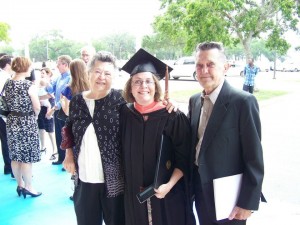Kea Theroux is a social worker who supports a national extension of the foster care system past age 18 for those who want to remain in care. Kea advocates from her own experience after she disclosed years of neglect which resulted in her spending the ages of 16-19 in the Louisiana foster care system. She was unsure if she had reached a place in her life where she was willing or able to hear other stories of abuse and foster care misfortunes but she has found her decision to serve others to be therapeutic. Despite initial hesitation, Kea has been a for two years. She is giving back and helping youth in care break negative cycles and build healthy relationships when just a couple years ago she had never heard of the term ‘foster care alumni’. “There is a powerful influence knowing that others went through the same situation,” she said during our interview.
Kea’s last foster placement was a therapeutic foster home for teen girls. Her social worker was less than desirable and at age 17 Kea never could have imaged herself in the same occupation. Kea did not learn many independent living skills in this placement but she appreciates that her foster mother attended every court hearing with her and explained the processes she was going through. Kea wanted to remain with her foster family and go to junior college after high school graduation but her foster mother could not support her financially without assistance. The pair discussed the potential living arrangements and Kea decided it was best that her space in the home be given to a young lady with more time remaining in the system and potentially greater needs. Her options were limited as she aged out of care at age 18 because she could not rent an apartment in her state until age 21. Like many other girls who age out of foster care in Louisiana, Kea moved in with her boyfriend. She describes herself as being “woefully unprepared” for adult life, marriage, and becoming a mother at age 23.
Kea worked with the Fostering Mississippi Connections, a program of CASA Mississippi, to help youth share their stories as advocates for changes to the foster care system. Youth in this program were able to give an accurate picture of what aging out of foster care without a permanent family really looks like. “It is the little things that matter most when you age out of foster care without permanent connections”, she explained. “Things like how to cook your first Thanksgiving turkey, or what to do when you break up with your boyfriend, or how to decide on your first professional hair cut in a beauty salon.” Kea was able to develop a statewide database of resources for current foster youth and foster care alumni before the grant funding for the program ended. The Fostering Mississippi Youth Connection Facebook page still serves as an avenue to raise awareness about the needs of foster youth.
According to Kea, “foster care is not an absolute terrible thing.” She sees the breakdowns and tragedies as a “system failure and not a person failure”. She is able to continue to affect change by sharing her voice with new CASA volunteers and community stakeholders through the Foster Care Alumni Association Advocacy Committee. In this role she also helps youth learn to advocate without focusing solely on negative experiences and alienating those who have the ability to improve the system of care in various ways.
Kea aged out of the system without any explanation of benefits or services she was eligible for. She was unaware that ‘emancipation’ would have allowed her to get an apartment before the age of 21. Kea received a check for less than $1,000 after exiting the system which was not enough to pay her security deposit, rent, or furnish her apartment. She is grateful that she was able to go “shopping” for essentials at ‘The Hope Chest’ but was not taught how to open a bank account. No one explained the process of obtaining a birth certificate, social security card, or government issued identification — the pertinent documents that “make you a person” is what she calls them. It is for these reasons that Kea believes the legislation should change and youth in Louisiana should receive transition counseling, independent living skills training, and assistance in obtaining essential personal documentation before exiting care.
When asked what we can do to support young ladies currently in the foster care system, Kea responds that we should reward them for positive behaviors and help them plan for life after aging out of foster care so that they do not have to return to negative homes with biological families or get stuck in a bad situation with a romantic partner.
Youth in care were not given an instruction manual on life and very often doing the best they can with what they know. Kea’s advice to youth in foster care is to give themselves a break by not being so critical of themselves. She believes that when you know better you generally do better. Kea also advises young people to search for and build relationships with people they can trust and then reach out to them and remain in contact with them. This practice has served her well as she has built a support system of people that she can ask for help when she needs it.
Kea earned her Associates of Arts (AA) degree in Sign Language from her local junior college right after high school graduation. Years later she returned to school and earned a Bachelor’s degree in Psychology. This past May she completed her Master’s degree in Social Work and plans to obtain her clinical license (LCSW) and become a Child Therapist. Her last set of foster parents and her biological mother attended her graduation ceremony. Kea reconnected with her biological brother through Facebook after many years of separation. According to Kea “after aging out you need all the family you can get biological and otherwise”.
Kea is a wife and mother of a daughter. We are grateful that Kea has chosen to impact lives through her powerful words and selfless actions.
As we host our 6th Annual PACK A PURSE™ in December 2012, we will use the Teen Toolbox blog as a platform to spread inspiration and hope by highlighting the triumphs of successful women foster care alumni.
Nicki Sanders, MSW, Chief Visionary Officer
The Teen Toolbox provides youth portfolio development and civic engagement and academic empowerment strategies to help teens set goals for life after high school and create a road map to reach those goals through its PACKAGED FOR SUCCESS™ Programs. We are committed to supporting and raising awareness about the needs and potential of teenagers in the foster care system.

